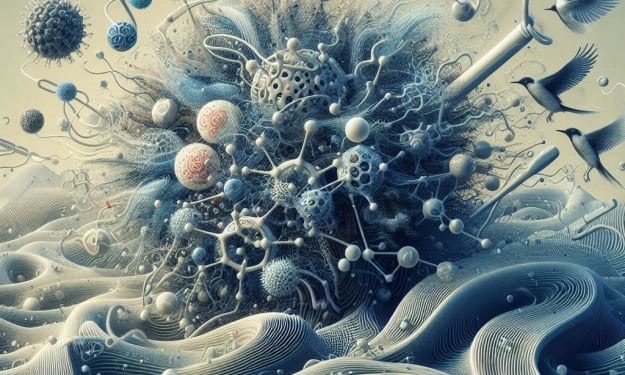Gene Editing, and the Future of the Human Race
Human Race

In recent years, gene editing has emerged as a powerful tool that has the potential to revolutionize the field of genetics and change the future of the human race. Gene editing is a process that involves making specific changes to DNA in order to correct genetic defects, treat diseases, or enhance certain traits. This technology has the potential to address a wide range of medical conditions, from genetic disorders to cancer, and could have significant implications for human health and evolution.
One of the most promising applications of gene editing is in the treatment of genetic disorders. For individuals with certain genetic conditions, such as sickle cell anemia or cystic fibrosis, gene editing could offer a cure by altering the genetic mutations that cause these diseases. In addition, gene editing could also be used to prevent certain genetic disorders from being passed on to future generations. This is possible through a technique called germline gene editing, which involves making changes to the DNA in sperm or egg cells that are then passed on to the next generation.
Beyond treating genetic disorders, gene editing could also be used to enhance certain traits in humans. For example, it could be used to improve cognitive abilities, increase muscle mass, or enhance athletic performance. However, these applications raise ethical questions about the use of gene editing for non-medical purposes and the potential for creating a new class of genetically enhanced individuals.
Another area of research that has garnered significant attention is the use of gene editing to create genetically modified organisms (GMOs). This technology has already been used to create crops that are more resistant to pests and disease, and could potentially be used to create livestock that are more efficient at converting feed into meat or produce higher quality milk. However, the use of gene editing in agriculture also raises concerns about the potential environmental impact and the safety of consuming GMOs.
Despite the promise of gene editing, there are also concerns about the potential risks and ethical implications of this technology. One of the biggest concerns is the potential for unintended consequences, such as off-target effects that could cause unintended mutations or harm to healthy cells. In addition, there are concerns about the potential for gene editing to be used for nefarious purposes, such as creating designer babies or genetically engineered super soldiers.
In response to these concerns, there have been calls for greater regulation and oversight of gene editing research. Some countries, such as the United States, have already implemented regulations to prevent the use of gene editing for non-medical purposes or to create genetically modified organisms without proper safety and environmental assessments.
In conclusion, gene editing has the potential to transform the future of the human race by providing new treatments for genetic disorders, enhancing certain traits, and creating genetically modified organisms with improved characteristics. However, there are also significant risks and ethical implications associated with this technology. As research in this field continues, it will be important to strike a balance between the potential benefits and the need for careful oversight and regulation to ensure that gene editing is used safely and responsibly.
About the Creator
akki mimoun
Your Spirit is Wonderland Your Imagination Make it Nice
Enjoyed the story? Support the Creator.
Subscribe for free to receive all their stories in your feed. You could also pledge your support or give them a one-off tip, letting them know you appreciate their work.






Comments
There are no comments for this story
Be the first to respond and start the conversation.